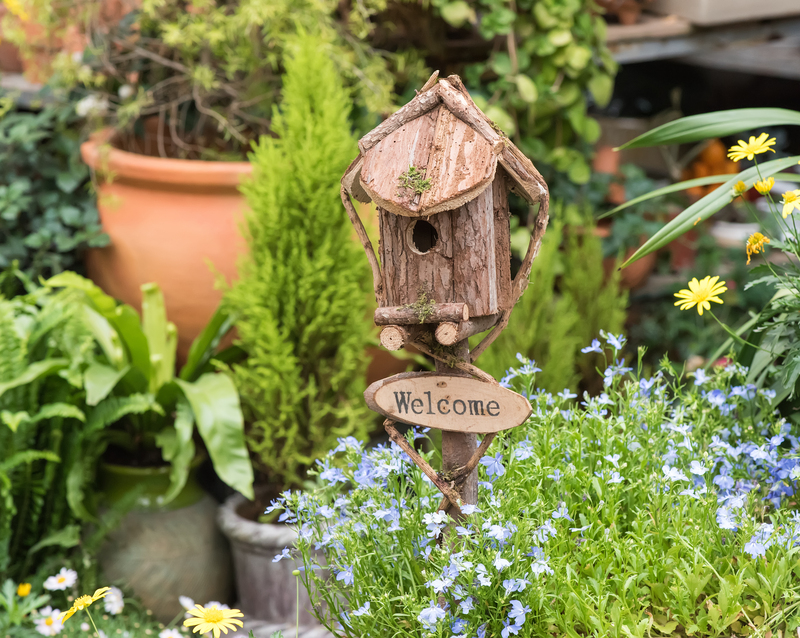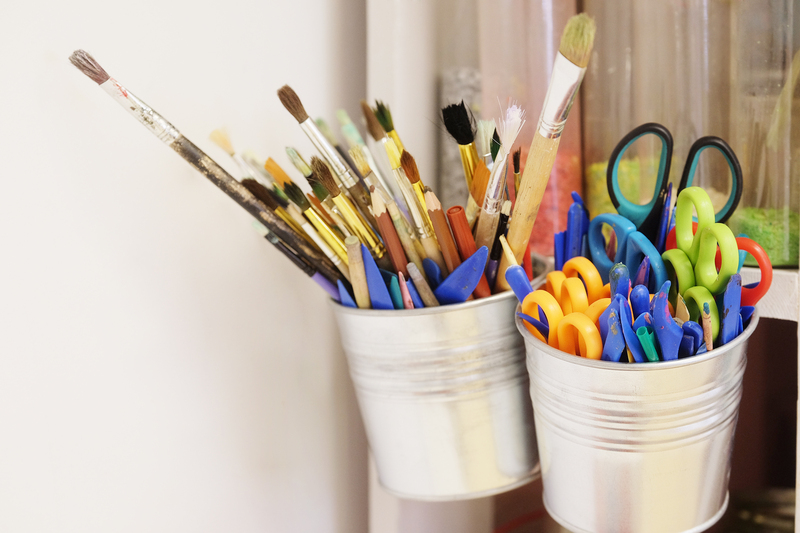Turn Your Old Cookware into Recyclable Material: A Comprehensive Guide
Is your kitchen cluttered with battered pans, chipped pots, and scratched baking trays? Discover how to give them a new purpose! In this article, you'll learn how to transform your old cookware into recyclable material, reduce waste, and help the environment.

Why Should You Recycle Old Cookware?
Cookware isn't made to last forever. Over time, pots and pans become unusable or unsafe for cooking. Rather than letting these items end up in the landfill, recycling offers a sustainable alternative. Here are several benefits of recycling old cookware:
- Reduces landfill waste and conserves valuable space.
- Saves energy as recycling metals takes less energy than mining and processing virgin materials.
- Protects the environment by decreasing pollution and preserving resources.
- Supports the circular economy and encourages responsible consumption.
Understanding the Materials: What Is Your Cookware Made Of?
Before recycling, it's important to recognize what type of materials your old cookware contains. This will determine the best method for recycling or reusing it.
- Aluminum: Lightweight, rust-resistant, and commonly found in frying pans or baking trays.
- Stainless Steel: Used for pots, stockpots, and some premium pans. Very robust and highly recyclable.
- Copper: Prized for its cooking qualities, but often lined with tin or stainless steel.
- Cast Iron: Extremely durable; may last generations but can also be recycled when broken.
- Non-Stick Coatings: Found on many modern pans; usually layered over aluminum or steel. Check if coatings contain PTFE or PFOA, which complicate recycling.
- Glass & Ceramic: Common in bakeware, these require specialized recycling streams.
How to Recycle Old Pots and Pans: Step-by-Step Process
1. Assess the Condition of Your Cookware
- If your cookware is lightly used, consider donating or selling it before recycling.
- Cookware with irremovable rust, severe warping, or damaged coatings is a great candidate for recycling.
2. Remove Non-Metal Parts
- Handles, knobs, lids, or glass covers should be separated whenever possible.
- Most recycling centers only accept pure metals (aluminum, steel, copper).
3. Clean Your Cookware
- Rinse off any food residues and ensure your pans are free of grease.
- Some centers may refuse heavily soiled items.
4. Identify the Right Recycling Facility
- Contact your local recycling center and ask if they accept old pots and pans.
- Use resources like Earth911 to search for scrap metal recycling facilities nearby.
- Each center may have specific requirements for dropping off cookware, so check beforehand.
5. Drop Off or Schedule Pickup
- Transport your sorted and cleaned cookware to the appropriate facility.
- Some scrap metal dealers even pay for certain metals like copper or aluminum!
What Happens to Recycled Cookware?
Once dropped off, your cookware undergoes a structured process:
- Sorting - Different metals are separated for efficient melting and processing.
- Melting - Metals are melted at high temperatures and purified.
- Repurposing - The purified metals are transformed into new products, from electronics to construction materials and even new kitchenware!
Alternative Ways to Recycle or Reuse Old Cookware
Creative Upcycling Projects
If your local center doesn't accept certain pieces or you're feeling creative, why not repurpose your old cookware at home?
- Planters: Old pots and saucepans make excellent quirky containers for indoor or outdoor plants.
- Organizers: Frying pans can be wall-mounted to hold keys, mail, or utensils.
- Bird Feeders: Hang large lids or pans outside and fill them with seeds for wildlife.
- DIY clocks or decor: Turn lids or shallow pans into unique wall art or functional clocks.
Donate or Sell Usable Cookware
If your old pots and pans still have some life left, consider:
- Donating to local shelters, charities, thrift stores, or schools.
- Selling through classified ads, online marketplaces, or garage sales.
Special Considerations for Non-Metal Cookware
Glass and ceramic items require special handling:
- Most public recycling programs don't accept glass bakeware or ceramics due to their high melting points and additives.
- Check with specialized facilities or reuse as garden markers, mosaic materials, or colorful bases for planters.
Are Non-Stick Pans Recyclable?
Non-stick pans present unique recycling challenges because of their chemical coatings. Here's how to handle them:
- Remove plastic, rubber, or wood handles where possible.
- Check with your local center if they accept pans with non-stick coatings, as some require you to strip the pan first.
- Brands like TerraCycle or certain manufacturers may accept mail-in recycling for coated pans.
How to Find Cookware Recycling Programs and Drop-Offs
- Check municipal websites: Many cities include scrap metal recycling as part of bulk pickup.
- Chain retailers: Some home goods stores offer recycling programs for old cookware when purchasing new sets.
- Manufacturer trade-ins: Popular brands occasionally run "old-for-new" exchange programs.
Eco-Friendly Tips for Future Cookware Purchases
To create a more sustainable kitchen, consider these eco-friendly cookware tips:
- Choose cookware made from recycled metals or sourced from ethical materials.
- Invest in high-quality, long-lasting products to reduce frequent replacements.
- Avoid cookware with questionable coatings and seek out ceramic, cast iron, or stainless steel alternatives.
- Read up on manufacturer recycling or take-back programs before purchasing.
Frequently Asked Questions About Cookware Recycling
Can you put old pots and pans in the curbside recycling bin?
Generally, no. Curbside recycling programs rarely accept cookware because of their size, weight, and mixed materials. Always consult your local waste management guidelines.
Are lids and handles recyclable?
Metal lids often are, but glass, plastic, and wood may not be. Remove all non-metal attachments for the best chance at recycling.
Is there any value in scrap cookware?
Yes! Aluminum, copper, and stainless steel can fetch scrap value--especially if you have larger quantities. Ask at your nearest scrap metal dealer.
What if my cookware is antique?
Consider donating or selling to vintage shops, collectors, or via online marketplaces before recycling. Some antique pieces may have significant value!

Summary: Give Your Old Cookware New Life
Transforming old cookware into recyclable material is a powerful step toward sustainability. Whether you recycle, donate, sell, or repurpose, every action helps reduce environmental impact and inspires responsible consumption.
By identifying the right recycling methods and making smart future purchases, you can maintain a greener kitchen and support a healthier planet. So, before tossing that old frying pan, ask yourself--can I recycle this into something new?
Share Your Experience!
Have you successfully recycled your old cookware, or created a unique upcycled project? Share your tips and stories below, and inspire others to join the recycling revolution!